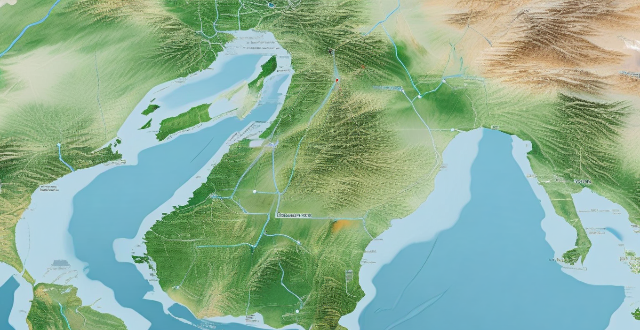Climate change is increasingly recognized as a driver of global conflicts. The effects of global warming, such as extreme weather events and economic impacts, contribute to social stressors and political instability. Droughts, floods, and coastal erosion can lead to water scarcity, displacement, and refugee crises. Economic impacts include agricultural decline and resource depletion, which can result in rural poverty and loss of livelihoods. Social stressors such as health crises and population displacement can strain healthcare systems and lead to refugee crises and social tensions. Political instability can arise from governance challenges and national security threats. Addressing these challenges requires a comprehensive approach that incorporates adaptation, mitigation, and conflict resolution strategies at local, national, and international levels.

Climate Change and Its Contribution to Global Conflicts
Climate change is increasingly being recognized as a driver of conflicts around the world. The effects of global warming are far-reaching, affecting not just the environment but also socio-economic systems and political stability. Here's a detailed look at how climate change contributes to conflicts:
Extreme Weather Events
*Increased Droughts and Water Scarcity*
Droughts lead to water scarcity, which can cause tension between communities sharing water resources. For instance:
- Middle East: The region has long been water-stressed, and climate change exacerbates this issue, leading to potential conflicts over shared rivers like the Nile and Tigris.
- Sub-Saharan Africa: Drought affects agricultural output, leading to food insecurity and potentially driving internal displacement and conflict.
*Floods and Coastal Erosion*
Flooding and sea-level rise threaten coastal communities and low-lying areas, displacing populations and creating refugee crises. Examples include:
- South Asia: Monsoon flooding affects millions annually, with the potential to displace people and create humanitarian emergencies.
- Pacific Islands: Rising sea levels threaten the very existence of island nations, forcing residents to migrate and seek asylum elsewhere.
Economic Impacts
*Agricultural Decline*
Changes in temperature and rainfall patterns affect crop yields, leading to food insecurity and economic stress. This can result in:
- Rural Poverty: Farmers face reduced incomes and increased vulnerability, potentially leading to migration and social unrest.
- Loss of Livelihoods: In some regions, traditional livelihoods become untenable, forcing people to seek alternative employment or migrate.
*Resource Depletion*
As natural resources are affected by climate change, competition over dwindling resources can lead to conflict. This includes:
- Forest Clearance: Loss of forests due to climate impacts can lead to disputes over land use and resource rights.
- Fishery Decline: Changes in ocean temperatures and acidity affect fish populations, leading to conflicts over fishing rights and livelihoods.
Social Stressors
*Health Crises*
Extreme weather events and changing disease patterns due to climate change can strain health systems. This can result in:
- Spread of Diseases: Warmer temperatures can expand the habitats of disease-carrying vectors like mosquitoes.
- Access to Healthcare: Disasters can damage healthcare infrastructure, making it difficult to respond to public health emergencies.
*Population Displacement*
Climate change can force people to move within their countries (internal displacement) or across borders (migration). This leads to:
- Refugee Crises: As people flee environmental disasters, they may end up in camps or informal settlements with limited resources.
- Social Tensions: Host communities may feel overwhelmed by an influx of migrants, potentially leading to xenophobia and conflict.
Political Instability
*Governance Challenges*
Climate change adds another layer of complexity to governance, requiring policy responses that may be challenging for some governments. This can lead to:
- Corruption and Mismanagement: In some cases, efforts to manage climate impacts may be mismanaged or corrupt, further destabilizing societies.
- Weakened Institutions: The strain on government services and infrastructure can weaken institutional capacity, making it harder to maintain order.
*National Security Threats*
Climate change can be perceived as a threat to national security, especially if it affects strategic resources or border regions. This includes:
- Territorial Disputes: Melting glaciers and changing geographic features can alter borders, leading to disputes between nations.
- State Fragility: States facing severe climate impacts may become fragile, susceptible to external influence or collapse.
In conclusion, climate change is a complex and multifaceted issue that contributes to conflicts through various channels. Addressing these challenges requires a comprehensive approach that incorporates adaptation, mitigation, and conflict resolution strategies at local, national, and international levels.